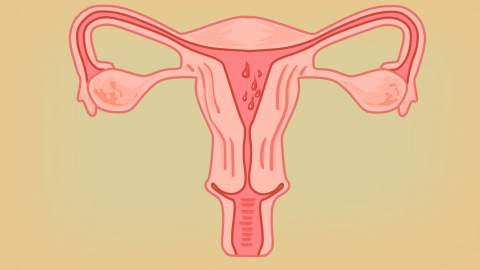How is a thin endometrium caused?
Generally, thin endometrium may be caused by age-related changes, cyclical physiological variations, medication effects, hormonal imbalances, endometriosis, and other factors. If discomfort occurs, it is recommended to seek timely medical treatment at a qualified hospital. Detailed explanations are as follows:
1. Age-related Changes
As women age, ovarian function gradually declines and estrogen levels decrease accordingly. Estrogen is the key hormone that promotes thickening of the endometrium. A decrease in estrogen levels directly affects the growth and regenerative capacity of the endometrium, preventing it from thickening as it would in younger women, thereby leading to thinning. Endometrial thinning caused by aging is a natural manifestation of physiological decline. It is advisable to maintain moderate physical activity, such as walking or yoga, to enhance physical health, and to undergo regular gynecological examinations.
2. Cyclical Physiological Variations
Throughout the menstrual cycle, the thickness of the endometrium naturally varies. For example, immediately after menstruation, the endometrium has just shed and is at its thinnest. As follicles develop and estrogen secretion increases, the endometrium gradually thickens. After ovulation, if fertilization does not occur, the corpus luteum regresses and estrogen and progesterone levels decline, leading to gradual shedding of the endometrium and entering the next cycle. The endometrium may be relatively thin before and after shedding. This type of cyclical thinning is a normal physiological phenomenon. If there are no discomforts in daily life, specific treatment is generally unnecessary. It is advisable to maintain a light diet and avoid spicy or irritating foods.

3. Medication Effects
Long-term use of certain medications, such as short- or long-term oral contraceptives, may inhibit normal ovarian function due to their hormonal components, affecting estrogen secretion and action, which can lead to failure of the endometrium to thicken normally, resulting in thin endometrium. This may also be accompanied by symptoms such as menstrual irregularities and reduced menstrual flow. Additionally, some antidepressants may indirectly affect the endometrial condition by influencing the endocrine system. If medication is suspected to be the cause, consult a physician to change or discontinue the relevant drugs; do not stop taking medications on your own.
4. Hormonal Imbalance
Hormonal imbalance may be associated with various factors, such as irregular sleep patterns and high levels of psychological stress. Insufficient estrogen secretion is one of the common causes of hormonal imbalance. Estrogen stimulates the proliferation of endometrial glands and stroma. When estrogen secretion is inadequate, the endometrium lacks sufficient nutritional support and cannot thicken adequately, leading to thinning. This may be accompanied by symptoms such as irregular menstruation, decreased menstrual flow, and shortened menstrual periods. Follow medical advice for hormonal regulation with medications such as Wuji Baifeng Pills, Xiaoyao Pills, or progesterone capsules, and adjust lifestyle habits to maintain emotional stability.
5. Endometriosis
Endometriosis may be related to factors such as retrograde menstruation, genetic predisposition, and immune system dysfunction. When endometrial tissue abnormally grows outside the uterus, such as on the ovaries or pelvic cavity, it can affect the pelvic environment, interfere with ovarian endocrine function, and potentially impair the blood supply to the normal endometrium, thereby affecting its growth and repair, leading to thinning. Some patients may also experience symptoms such as dysmenorrhea, abnormal menstrual flow, hirsutism, or weight gain. Patients should follow medical advice to use medications such as combined norethisterone tablets, metformin hydrochloride tablets, or spironolactone tablets for treatment, and surgery may be necessary when indicated.
It is important to adjust lifestyle habits, ensure adequate sleep, avoid long-term reliance on medications, and manage emotions effectively through activities such as listening to music or talking with others to relieve stress and maintain hormonal balance.







